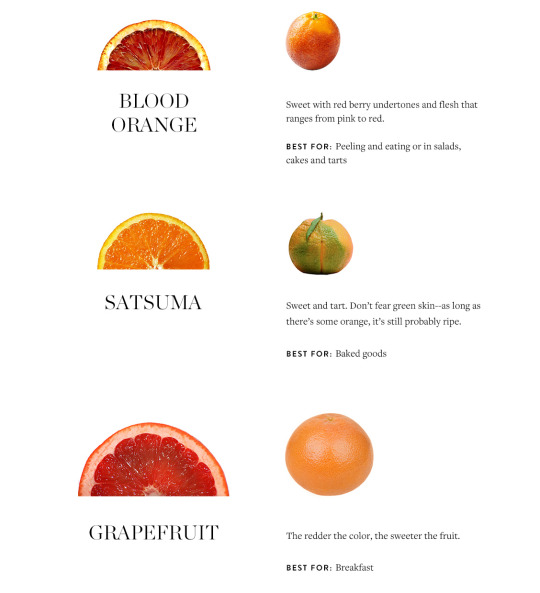At the intersection of family & friends, faith, love, cultural identity, social justice, sexuality, interdisciplinary study, & an increasing global mindset.
Don't wanna be here? Send us removal request.
Link
“My philosophy is very simple. When you see something that is Not Right. Not Fair. Not Just. That’s somethin’. Do somethin’. Do somethin’. Get in Trouble. Good Trouble. Necessary Trouble.” - John Lewis
“He said he had already decided that he would be in this for his life’s work. So asking him about that date, he said he wasn’t afraid. He wasn’t afraid of death... He said that he had committed himself to a nonviolent way of life. The philosophy of life. And to also to bringing his body to bear as collateral. To free us all. I mean, it’s amazing, amazing that this beautiful, young, Black man who had everything to live for was sitting in on that ridge, was standing across that ridge, willing to die for us. Amazing.” - Erika Alexander
“...I think he understood that legislation and actual doing of the work, the administration of the work was a way to, to be an activist as well. I think he rightly understood that there, if he had done a lot of the work and protested. If he had proved his mettle out there. In order to push himself again, go into the belly of the beast, and say now I was here from the inside. And be able to be there, to make the sausage, was a very forward thinking. I mean he was a progressive...But I mean, I think he just wanted to be a part of it in the best way he knew he could be. And to be a representative of something he had worked so hard to do. Didn’t seem like he was giving the way in his name. In fact, he was finding a different way to be an activist, and again to agitate, but from the inside.” - Erika Alexander
“...I know he’s an OG cool dude. Because he died in active protest. Gosh!... ... I’m getting teared up more than I want to. Cause I respect him so. The man died in active protest. He had never attended the inauguration of Donald Trump. He had never attended a State of the Union. He said he was an illegitimate president, and he would not validate it or lend it credibility. So that was how he felt about that administration. He would not acknowledge it, and he would not even deign to show up in that man’s presence. That’s some real OG stuff.” - Erika Alexander
0 notes
Text
A New Beginning
I first started this blog in November 2013 as a way to post some of my thoughts online so that others can see & comment on them. But as much as this blog was just that, a blog; it was also a place to gather my thoughts in one place, together with other things that I wanted to learn about, become more involved with, and become comfortable with the kind of person that I am and want to be. Looking back on the six years that I have used this blog since I have come a long way.
That said - there’s still a lot of places that I would like to go, interesting things that I would like to learn more about and contribute to, and ways in which I would like to grow in. As much as I’ve accomplished a lot of the goals I set out to do in 2013, I still have a ways to go, and this blog can help me achieve those! But as much as I continue to share my thoughts and ideas on here - there are things that I’ve let get in the way of that:
When folx visit my primary Tumblr blog, they don’t see this blog page, but the front page of a blog I started around the same time when I was still going to school at Seattle University and living in Seattle. I stopped posting to that blog in January 2012, but it remains - and that’s what others first opinion of me is.
When I re-blog posts & the default blog selected is my Seattle blog, not this blog. When I comment or re-blog something, and the viewer or OP clicks on my profile pic, the first blog they see is my Seattle blog. Not this blog that expressed more fully who I am. That needs to change.
I believe that Tumblr is meant to be a place where folx can re-blog and comment on things they like or don’t like. It’s a place where one can build a community with other like-minded folx. I don’t necessarily do that here, and I’d like to be able to do so. This blog tends to be so isolated from my Facebook, Twitter, or Instagram accounts. It’s just as isolated from other blogs I’ve since started and abandoned. What if that weren’t so?
So, I’m going to be gradually incorporating blog posts that I’ve posted to other blogs on Tumblr and Wordpress. After, I’ll delete a lot of those blogs. These posts (including ones from TravelinSeattle & SF26Days) can now be found with other travel-related posts under My Travels. Any pages formerly found on these blogs can be found here.
Posts that I’ve written about who I am and what this blog is about, as well as what other blogs I started and never completely build on were about, can now be found as an introduction under About. When possible, I will note on the bottom of the post where it was originally posted, as well as the original tags of the post.
Finally, I know that with the merging of my “reblog blog”, my “personal blog”, and my “private thoughts blog”, it’s going to get a bit crowded here. That’s why I’ve come up with My Thoughts. This page will feature anything I have ever written about, including My Travels, as well as a few curated materials that relate to my identity (the big three: spirituality, race/culture, and sexuality). Think of it as a filter.
Thanks for all the support, y’all! It’s been great & I hope that you’ll enjoy the next few years that I’ll be posting to this blog!
Alex
2 notes
·
View notes
Link
Essay by 2019 ROOTS intern Alex Kwok who recently searched for and visited his ancestral village in Zengcheng 増城, Guangdong Province 廣東省, China. 廣州市增城區沙崗村隔塘合作社.
2 notes
·
View notes
Text
Alex and Rachel’s Rootings
7/1/19
Today was the last day of our rootings! We started off with Alex. Alex wasn’t feeling well last night so we conducted his briefing today on the bus on the way to Alex’s paternal great grandfather’s village in 增城. Alex first became interested in his family’s history when a relative of his passed away in the mid 2000s and his realization that his family won’t be around forever. For Alex, this rooting is about connecting with family. Getting information for Alex’s rooting has been challenging. Alex’s paternal great grandfather immigrated to Hong Kong from China and since then only Alex’s paternal grandfather had visited the village. Alex’s grandfather has dementia though and it has been challenging to get information from him. It was discovered that the village name that Alex provided didn’t have Kwok family members and there have not been sources available to verify the information. However through the persistence of the Roots leaders, Alex, and the local contacts in China, Al was 99% sure that the local officials had found the right village when we were headed to the village.
It turns out that a woman in one of Alex’s grandfather’s photos is still alive and is actually Alex’s great grand aunt – wife of the younger brother of Alex’s great grandfather. Her son (Alex’s “uncle”) showed Alex around the village, including where Alex’s great grandfather’s house once stood. Apparently the house had collapsed a long time ago and then a road was constructed through part of where it once stood thereafter. On the site of the former house, a piece of old ceramic was found that Alex took home with him. We then went past a lychee tree and the stump of a 300-year-old tree that belong to the Kwok family and where Alex’s grandfather had also visited when he was last there in the 2000s. This was on the way to the grave site of Alex’s great grandfather. In order to get to the grave site, Marcus and Alex’s uncle had to make a path through overgrown shrubbery and bamboo in order for a small group to get to the site. After Alex paid respect to his great grandfather, Alex’s uncle went to visit the gravesite of his great great grandfather.
The group then went to a local place for lunch, which had really great food. There Alex got to meet up with other relatives and get to learn about their lives and more about his grandfather and his father. Alex learned that his grandfather had immigrated to Hong Kong when he was sixteen years old, which was older than what Alex had thought. During the rooting, Alex also learned the full name for his great grandfather. Alex had only had two of three characters of his great grandfather’s name. Alex didn’t expect to find family nor to find the grave site of his ancestors to be so close to his village.
After lunch, we went to Rachael’s village. Our first stop was to meet officials at the local government building, which was huge and the largest we had seen out of the other townships. We then went to a smaller local government building where we were greeted with a sign that welcomed our group along with plates of fruits. The local officials gave us a presentation about the village, including the local median income for the village, number of households, and the future development plans for the village. The timing was very fortunate for Rachael, who would probably be the last to visit the village in its original layout.
Next, we visited the ancestral home. In a blink of an eye we were transported from a city setting to a 300 year old village town! She obtained some tender stories from her family about her grandfather playing in the village streets before the ancestral 拜祖先 ceremony. Rachael was moved to recognize her the Tang family name on the ancestral tablet before proceeding to place incense and burn paper money to honor her ancestors. She spent a quiet, reflective moment to take in her feelings about the house and her family before rejoining the group.
Rachael’s Rooting took a welcome turn when her relatives offered to take our group to visit her ancestral gravesites. It was a beautiful hike (with a few mosquitos), passing sweeping city views and grassy landscapes to do 拜山 for her five ancestors.
At the end of the Rooting, Rachael reflected on her half Chinese and half Nicaraguan identity. The language barrier has always been a barrier to claim her Chinese identity despite her family practicing certain customs and culture. It was very significant to see the house and her family tablet. Now, armed with stories of family members from previous generations, she feels a stronger connection to her Chinese identity than ever.
1 note
·
View note
Text
Meet the 2019 Roots Cohort
In search of their ancestral villages, 11 people of the Chinese diaspora hailing from the Bay Area and Boston will soon travel to the Pearl River Delta in Guangdong 廣東省, China. We will visit 5 different areas, including Kaiping 開平, Taishan 台山, Xinhui 新會, and Guangzhou 廣州.
Sarah Tan 譚美婷
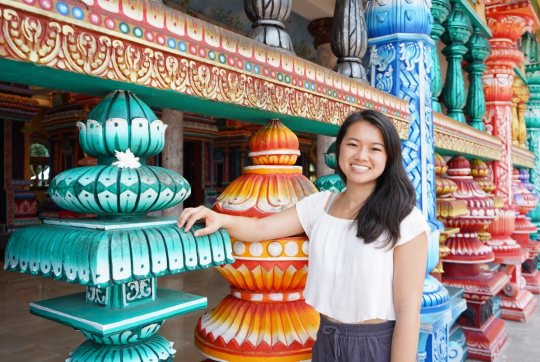
Village
My mother’s and maternal grandparents’ village. 永安村 (Yong’an Village) in 台山 (Taishan)
What do you do for fun?
I enjoy strength training at the gym, hanging out with friends and family, attending music concerts, watching basketball, and learning more about photography.
How did you hear about Roots?
My sister had a handful of co-workers who participated in Roots Plus (2018). They wrote a blog post for work and my sister shared it with me. I also recently found out that my favorite professor at UCLA was a rooter!
What are you looking to accomplish?
Growing up, my mother told me many stories about her humble beginnings and what it was like to grow up in a village. I look forward to living and experiencing the community and environment my mother and maternal grandparents came from before immigrating to the United States.
What are your expectations?
I do not have any expectations going in. I just know it will be a trip of a lifetime and this experience will help me reflect on who I am today
Choose a food that describes you?
BURRITOS! Yummm!
Alexander Kwok 郭智���
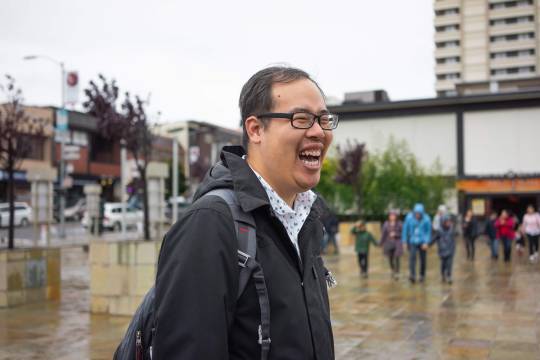
Village
I would like to visit my paternal grandfather’s village 隔塘村 (gaak tong cyun) in Zengcheng 增城. I decided to save my paternal grandmother’s village 南朗鄉 in Shunde 顺德 for another time, as I have a lot more resources on my paternal grandfather’s side than I do for my paternal grandmother.
What do you do for fun?
I like to read, play video games, blog, listen to music and podcasts, bake; go camping, hiking, kayaking; try new foods and explore new places!
How did you hear about Roots?
I’ve been doing research on my paternal grandfather’s side of the family for 5 years now but hit a wall when I tried looking for our home village. As a lot of the resources seemed to focus on the Sze-yap area of 廣東 Province, I wasn’t able to do much more and stopped trying to find it.
One day, I was looking for more resources and came across an old website under the Chinese Culture Center, which redirected me to the Him Mark Lai Digital Archive. After some exploring, I found the database of villages in 廣東 with associated surnames, but none of them included my home village.
I thought I had hit yet another brick wall - until I started googling one of the headers in the Digital Archive, “The Roots Program”. I quickly found references to the program and old exhibits on a few websites but thought they might have stopped the program because I didn’t see anything recent. Imagine my surprise when I found the Friends of Roots site & the Tumblr blog…!
What are you looking to accomplish?
Growing up my paternal grandparents spoke mostly Cantonese, so I never got to ask them questions about their childhood, how they met, or what it was like to raise a family in Hong Kong, let alone about my ancestors or our home villages. I’m hoping to regain some of these stories from our family through visiting relatives in Hong Kong, where my grandfather’s and father’s generation grew up and paying my respects at family graves across Hong Kong.
Through visiting my paternal great-grandfather’s home village in China, I also hope to regain a sense of identity that our family has since lost. Even though my paternal great-grandparents left the home village to go to Hong Kong in the late 1930’s, my great-grandfather had to leave the family at the start of the war, because the family was afraid something would happen to him in a city under Japanese occupation. Our family never heard from him again, and it was presumed that he had passed away back in the home village. Though my grandfather has been back to the village in the late 2000’s, he didn’t talk much about his trip with the rest of our family, and we don’t have any records where the village may have been.
So, in visiting my home village and reconnecting with whatever family is left there, I hope to learn more about my great-grandfather and grandfather’s generation, as well as reconnect with family still there. I also hope to get a sense of what growing up in the village might have been like for my great-grandfather, what he liked to do, what the village looks like, etc.
What are your expectations?
I don’t have many expectations other than going back, reconnecting with family there, and seeing what the village looks like. My great-grandfather returned to the village in the early 1940s, so I would like to visit his grave if I can. I’ve heard that when my grandfather went back to the village, he rebuilt his father’s tomb at the time.
But I can’t wait to taste all the delicious food in Hong Kong & Guangdong, learn more about overseas Chinese - including those who migrated to Southeast Asia, hopefully, and get a sense for what Southern China is like.
Choose a food that describes you?
Jakarta-style bakmie - It’s something that I grew up eating as a part of birthday celebrations, represents both the Chinese & Tionghoa (Chinese Indonesian) sides of my family, & reflects on a range of experiences that I share with others being a part of multiple cultures.
Rachael Tang 鄧安琪
Kathleen Wong 黄玉明
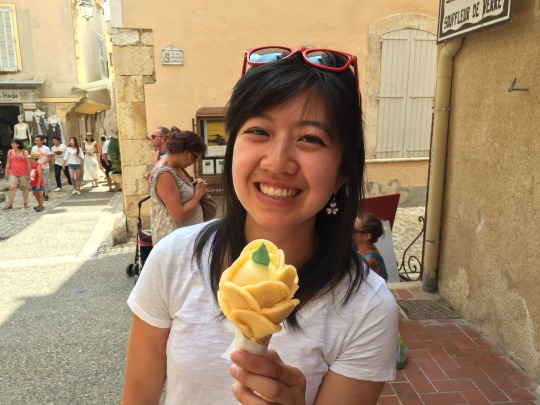
Village Kaiping, Guangdong Province, China. 開平中股鄉赤坎屋上樓村.
What do you do for fun? Rock climbing, running, cooking, and adventuring!
How did you hear about Roots? I heard about Roots through co-founder Al Cheng. My boyfriend introduced me to him as we were having a delicious bun bo hue lunch. At the end of the lunch, Al remarked that I probably have roots in Guangzhou. We connected on Facebook and I saw his program posts. I was intrigued, applied, and the rest is history!
What are you looking to accomplish? After an intimidating visit to Hong Kong in 2011, where I could not demonstrate enough language skills to get around, a visit to China seemed so intimidating. This will be my first trip to the mainland so I’m hoping to get a better understanding of Chinese culture and connect it with my upbringing.
What are your expectations? Good food, good company, and hopefully not too many mosquitos!
Choose a food that describes you? Ice Cream :) Sweet and refreshing!
Jenny Lau 劉健儀
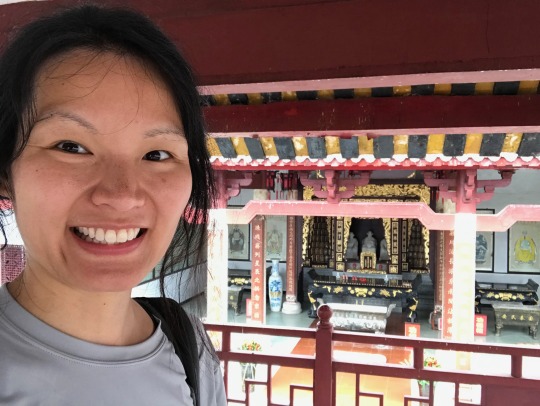
Village
漢塘村 in 台山市省冲蔞镇達材鄉. The village is where my parents were born and raised and also where my paternal grandfather was born and where my maternal grandfather grew up starting around five years old.
What do you do for fun?
I enjoy hanging out with my friends, eating good food, being in nature, exercising, watching movies, sharing stories, being present.
How did you hear about Roots?
I visited the Roots website after seeing a facebook post linking to it from a friend.
What are you looking to accomplish?
I am looking to better understand my parents by visiting the village where they were born and grew up and to imagine what life must have been like for them. I also want to talk to people who might remember my grandparents and have information about them.
What are your expectations?
I would like to connect with my fellow Rooters, hear their stories and why they wanted to do Roots, visit my village with my brother, who is also a Rooter this year, and to see the village that he chose. I would like to learn more about Chinese history, especially when my parents and grandparents were living in China and to contextualize family events within broader Chinese history.
Choose a food that describes you
Some of my staple foods: white rice with laap cheng and chau baak toi thlem (Chinese sausage with stir-fry baby bok choy) and unsweetened Hong Kong (HK) style milk tea. The rice dish appears simple but is very hearty like me, with the right mix of meat/veggies, sweet/savory. At the same time, I am unique in my bold and deep expressions, similar to HK milk tea, which is a unique spin to a classic tea with milk concept but it’s particularly bold in flavor because it’s double- or multi-brewed and it’s full of depth from evaporated/condensed milk.
Michael Tom 譚振豪
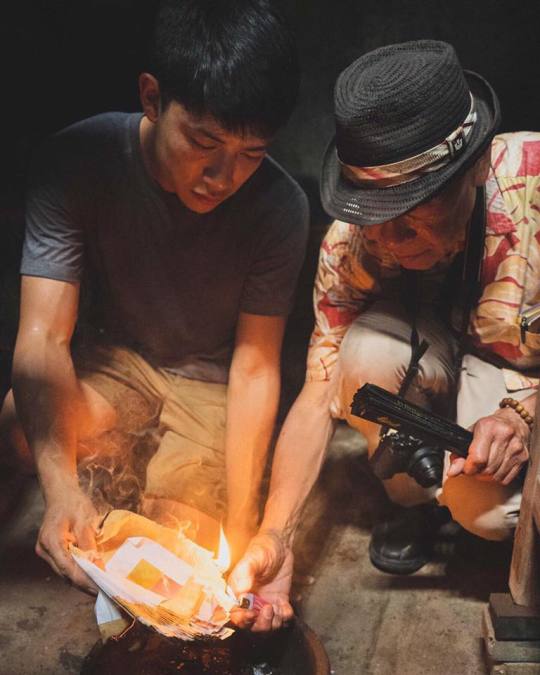
Village: 台山水步毛坪村 (Taishan Shuibu Maoping Village)
What do you do for fun? I like to do indoor bouldering, taking photos, and hanging out with people
How did you hear about Roots?
My cousin, Scott Leung, and my aunt and uncle, Ray and Karen Leung, all went on Roots and recommended that I check it out
What are you looking to accomplish?
I just wanted to see where my grandfather grew up and where my greatgrandfather and greatgrandmother lived
What are your expectations?
I didn’t have any expectations because my family hasn’t had any communication with the village since for the past 40 years. I went in with an open mind, ready to accept every new experience
.Choose a food that describes you?
Kettle Corn. Savory is serious. Sweet is fun. I’d like to think I’m both, but also 90% hot air.
Angela Yip 叶嘉宝
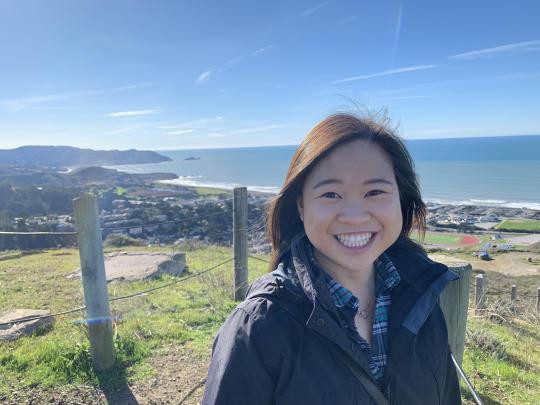
Village
Wong Cyun in Toisan - 台山 三合 潢村 河清里. This is my paternal great grandfather’s village
What do you do for fun?
Eat! There’s so much amazing food in the Bay Area. I also love keeping up with my bullet journal, going on hikes, and reading fiction. I’ve really been enjoying reading books by Asian American female authors lately. Some recent favorites are Chemistry by Weike Wang, Everything I Never Told You by Celeste Ng, and A Place for Us by Fatima Fahreen Mirza.
How did you hear about Roots?
I heard about Roots from my mom’s cousin’s wife Liana Koehler, Roots alum and Roots lecturer. It came up in conversation at dinner after my grandpa’s funeral. She said I had to do Roots, and I was immediately sold. Roots came at the perfect time.
What are you looking to accomplish?
I am hoping to learn more about a side of my family that I don’t know much about–my paternal grandma’s side. I grew up extremely close to my grandma, and I want to be able to show her pictures of her father’s village because she was never able to visit. I also just want to learn more about Toisan, even basic information like what people eat and grow and what they do for fun. Both sides of my family are from Toisan, so it has shaped my family and my experience of being Chinese in the US in huge ways, but I know very little about the region.
What are your expectations?
I hope to find the right village! Other than that, I am trying to approach my rooting with little expectation and to stay open to whatever might happen. I expect it to be an emotional experience for me for sure.
Choose a food that describes you?
Fried rice from Fung Wah on Mission Street in Daly City
Jeffrey Lau 劉健仁
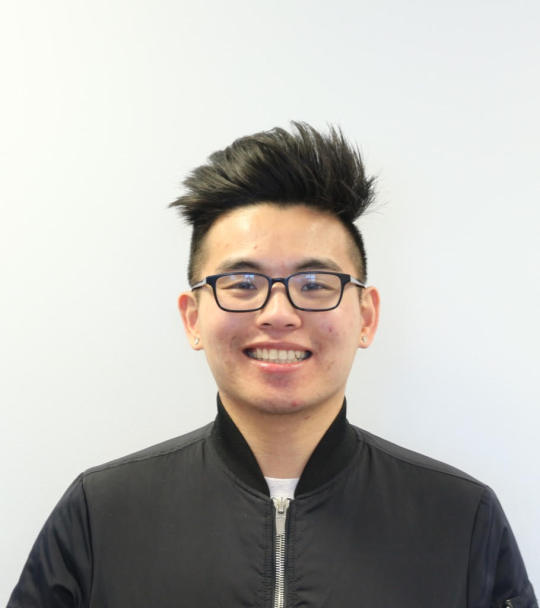
Village: I’m visiting my paternal grandma’s village of 衝洋向南村
What do you do for fun? I hang with people that are easier for me to hang with for fun.
How did you hear about Roots? I learned about Roots two years ago from a friend’s Facebook feed! I marinated on the idea of applying until I actually did.
What are you looking to accomplish? I’m looking to reflect on my relationships with family members who’ve had the most direct impact on my life—like the one with my paternal grandma, who raised me. I want this trip, in the long run, support my process of grounding more of my life in my Chinatown organizing work.
What are your expectations? My expectations are simply to get a feel and look of where my grandma grew up. She don’t tell me much herself, so I’m gonna discover more about her myself.
Choose a food that describes you? I’m gonna say fries. Fries done well are golden and crispy, but get kinda whack over time as they get soggier. I usually start strong in many things but my energy dips over time and some times I’m kinda whack towards the end, haha…
Hannah Yee 余壽玉
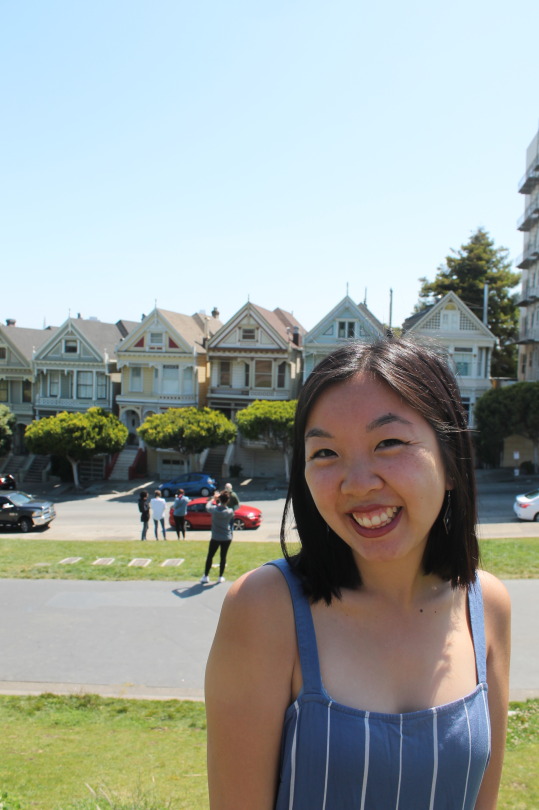
Village - Dick Hoi, Toisan
Fun - I dance, garden, bake, and love being in the outdoors
Hear about Roots - Through my sister who found out through social media haha
Accomplish - (?) in life? in roots? - For Roots I wanted to accomplish finding my village, seeing the school I have heard so much about, and finding a base of friends who want to explore their Chinese American identities together and eat good food together. Expectations - I didn’t know what to expect from this program. I expected it would be exciting, rigorous, tiring, and fun. I also expected it to be like solving a mystery/Clue/puzzle
Food - Dung/Jung - Have to open up the leaves to enjoy the inside! Filled with surprises like peanuts, lup cheong, egg, etc. Warm, comfort food that is a classic! Picture - I’ll send you one once I get home!
Fiona Wong 黃寶賢
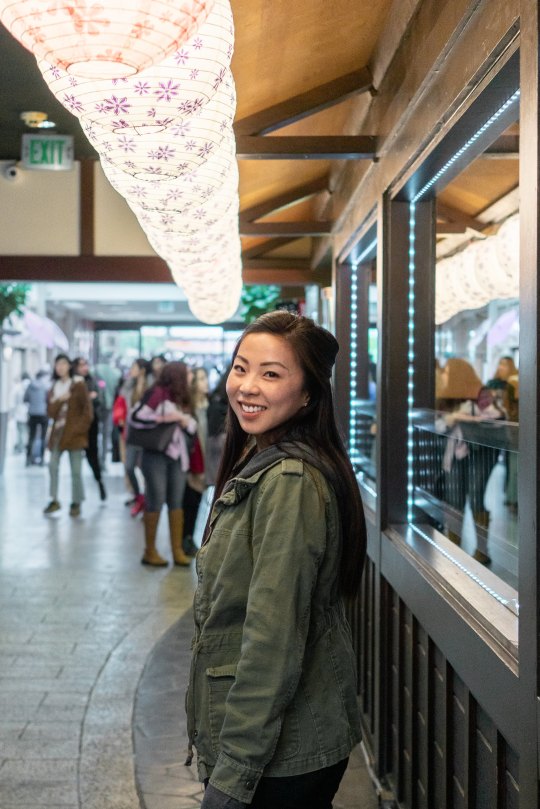
1. Village
中國廣東省台山市白沙鎮潮境众亨鄉潮興里
Bak Sa, Toishan
2. What do you do for fun?
I enjoy exploring new places, trying new things, and checking things off my to-do/travel bucket list during my free time. I love spending quality time with friends and family while having delicious food. As long as it is a day with blue skies, I do not mind what I’m doing as long as I’m outside!
3. How did you hear about roots?
I heard about roots through a friend who went on this program and shared her experience through social media.
4. What are you looking to accomplish?
I am looking to dive deeper into the history of China and Chinese immigration to the states with emphasis on Cantonese and Toishanese context. I am excited about the opportunity to visit other villages in the Pearl Delta River Region and to return to my ancestral village.
5. What are you expectations?
I did not have much expectations going in other than hoping that our cohort will support one another wholeheartedly.
6. Choose a food that describes you
Some type of dish that has onions because I have a lot of layers.
Nicole Wong 王雅斯
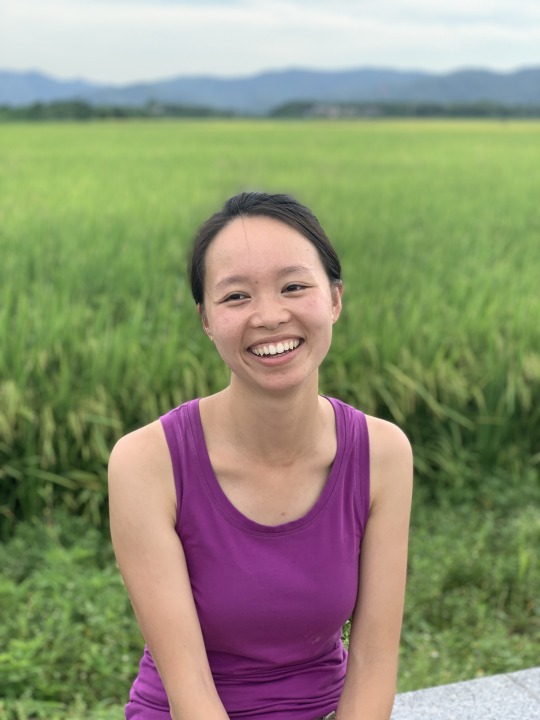
Village
I’m visiting my paternal great grandfather’s village: 江門市蓬江區荷塘镇三丫沙滘村.
What do you do for fun?
I love to cook food and sing with friends, join the occasional pick-up soccer game, try different dance classes, read, and get outside.
How did you hear about Roots?
I first learned about Roots from my mom, but it wasn’t until I heard Steve Owyang speak about the program at a CAA anniversary dinner that I seriously considered applying.
What are you looking to accomplish?
To learn more about my family’s history so I can understand myself better and connect more deeply with my Chinese heritage.
What are your expectations?
To meet my Xinhui relatives and see the village, old house, house, and gravesite of my ancestors.
Choose a food that describes you?
Peanut butter (because I love it and chew on ideas/questions for a while
1 note
·
View note
Photo
Oh my gosh!! Now I'm sooooo ready to identify any dog out there 😆 Send me your dog pics - I'm sure I'll get at least 50% right!
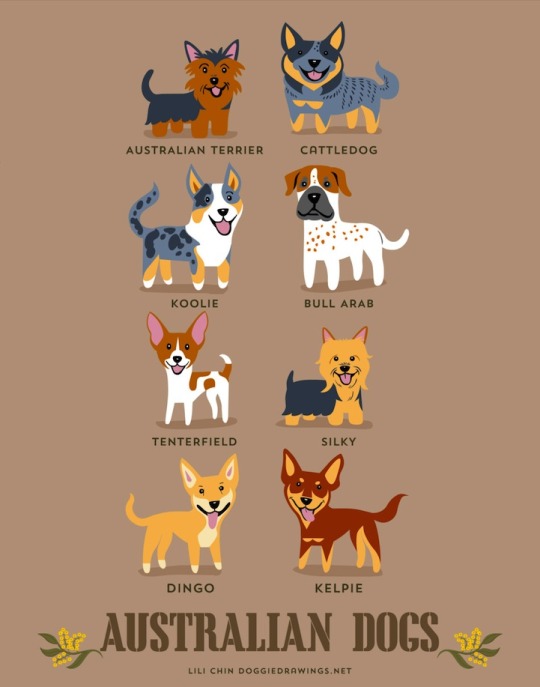


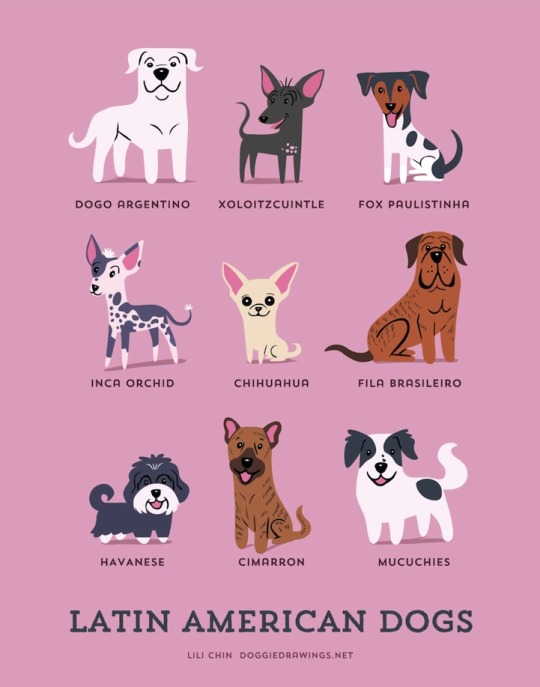


Illustrator Lili Chin’s adorable series Dogs of the World illustrates 192 breeds of dogs grouped according to geographical origin.
900K notes
·
View notes
Photo
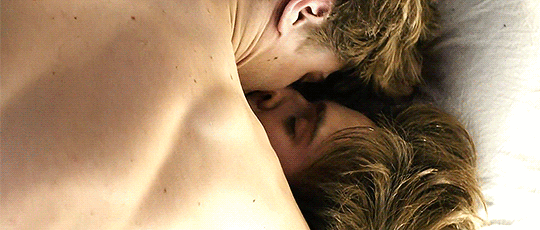



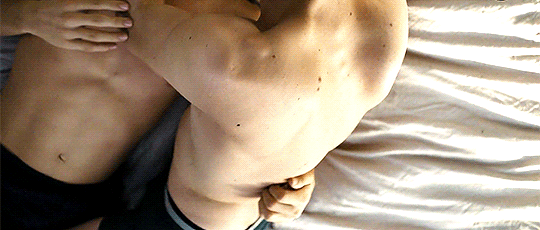




The first time I saw you, it wasn’t at the common room. It was in the hallway, the first day I arrived. I knew no one and I bumped into you and your friends. You didn’t see me. But I did. I only saw you, in fact.
Saturday, 09:17
18K notes
·
View notes
Link
I found this link while looking at housing in Hong Kong & the toilet + shower situation (still don’t get why that’s a thing!)... and some of these places are the most amazing that I’ve ever seen!
It’d be nice if I could factor in a few when I go to Hong Kong in the summer! Though some are pretty out of the way too, so it might be hard to do these in a few hours, let alone half a day!
0 notes
Text
History Informing Family Experiences
Update: After looking through JSTOR - I have a subscription through SFSU and my alumni association membership - I’ve found a few journal articles with first-hand narratives about the Japanese occupation of Hong Kong and the events that led up to it - and a particularly interesting book about HKU faculty and student’s experiences immediately before and during the occupation. I’ve read through both and will post what I’ve learned through here. It provides so much more background for me to use.
Hearing about the siblings that my dad lost during the War. About the orphan girl that 第一祖叔父 adopted during the war. About the Japanese bombing that led 第二祖叔父 to think that his family had died and to stay in Singapore & start a new family. About the circumstances following the war that almost led to 第二祖叔父 to give up my aunt for adoption, had 第一祖叔父 not decided to adopt her instead.
I feel completely inadequate - in that, I don’t know much about China’s role in World War II, the Japanese invasion that led to its invasion of Hong Kong and Singapore, Hong Kong during the Japanese occupation, and the subsequent liberation. This despite having vociferously read book after book about World War II in high school. This despite having taken AP World History and APUSH in high school - and several history and Chinese politics classes in college.
I'm only now realizing the scale to which my family was affected by World War II and I am trying to find some micro-historical context to put it in... But I don’t even know where to start. Sure, there’s Iris Chang’s “The Rape of Nanking”, but even that, I feel, isn’t as personal as reading narratives from Hong Kong would be. Time to see if there are any academic histories about the occupation of Hong Kong by the Japanese...
0 notes
Text
How do I shower in Hong Kong (and other trip related thoughts) Part 1
So, at our first Roots Seminar, the leaders all went over the tentative dates for when we’ll be going to China - so, naturally, a good chunk of my week has been thinking about all the things I want to do in Hong Kong 😀
I’ve never been to Hong Kong, but from what I know, it’s a pretty congested city where housing is as much, if not more of an issue than it is in San Francisco. That said - why are there so many Airbnb’s? Doesn’t HK have any rules on renting them out for short term stays? Is this contributing to the housing crisis?
... and another thing! What’s with these showers on top of the toilets? It’s a bit strange for someone like me to imagine bathing in the same room where your toilet and sink is. I’ve seen one other place here in the states where this is the case. But for the most part, the shower is usually separate from the toilet, even in micro apartments.
Is the water supposed to go in the toilet... in the sink... or does it just go on the floor and drain out? Are there ever any issues if it doesn’t drain out? I can just imagine the sight now! Checking out - and the manager coming in, only to find a small pond in the bathroom... Do I need to bring a broom to sweep the water towards the drain?
Otherwise, I think I’ll be doing an Airbnb this time, instead of spending time in a hostel... unless the rest of the group is getting rooms in a hotel. Thinking back on my whirlwind trip through Vienna, Zurich, Munich, and Salzburg, that was one thing that stressed me out the most - the lack of privacy.
Yes, I love staying in a hostel, but I recharge best when I’m alone, in the comfort of a private room. Besides, I love how a lot of HK’s are reasonably affordable and close by major thoroughfares! So I can be out late, getting food or going to see the sights, and not have to worry about the distance it’d take to get back!
That said - I think I’ll break down the days I’ll be in Hong Kong, by spending one day in each the main areas that I want to go to, whether it’s to see the sights, admire the scenery, visit family or the cemeteries where a lot of my ancestors were buried!
Though I have yet to assemble a comprehensive list, I’ll try to spend time on Lantau Island, Sheung Wan/Central, Tsim Sha Tsui/Kowloon, and San Po Kung/ Tseung Kwan O... But we’ll see. I have about half a day, coming back from Guangzhou, three full days, and 3 hours, before I take my flight to Singapore.
1 note
·
View note
Photo


I found this chop among 爷爷's belongings - probably from his time at the bank, though it could have been used for just about anything. I think it's amazing to look at the different forms of Chinese characters in seal script.
But it's even more amazing to think of the skill it takes to carve this - it's hard to change things once you carve them into stone, but that contrasts with the complexity & grace of each character's form (even taking into account the 繁体字/traditional forms).
That said, I've learned my lesson. Never have someone carve your name into a seal when you're on a shopping tour & time-limited (seal on the right)! This is one thing I look forward to having done when I go to Hong Kong this summer.
0 notes
Video
youtube
I found this video on YouTube a few years back when I first started my journey discovering my family roots; now I *actually* get to visit family in Singapore! How cool is that?!? 😁
Someone pinch me - I still can’t believe that I’m going to be traveling to where my dad and his family lived and where some of my relatives still live! It’ll be a pretty packed summer, definitely - a lot of reconnecting, meeting new folks, hearing stories, seeing where my family grew up, and getting to experience it for myself, instead of hearing from it secondhand from friends or colleagues!
Summer 2019 FTW!!
0 notes
Video
youtube
So, I’ve finally decided what I’m going to bring to the Roots Meet and Greet on February 16th - bakmi.
Why am I bringing it when it’s not a ‘Chinese’, let alone a Cantonese dish? Well, it all stems from the prompt that we were given - Bring your signature dish or the dish that best represents you.
Bakmi isn’t my favorite, Indonesian dish - but it represents my own identity and heritage in so many different ways. Lately, after going through many different labels that I feel comfortable identifying with (ABC, Asian, Asian American, API, Chinese, Peranakan), I’ve settled on Tionghoa.
According to Wikipedia, “Chinese Indonesians (Indonesian: Orang Indonesia keturunan Tionghoa) or (in Indonesia) simply Tionghoa (simplified Chinese: 中华; traditional Chinese: 中華; pinyin: Zhōnghuá; Pe̍h-ōe-jī: Tiong-hôa), are Indonesians descended from various Chinese ethnic groups, primarily the Han Chinese. Many people who identify, or are identified, as "Chinese Indonesian" are of mixed Chinese and local ancestry.”
When I was young, I remember Opa telling me about the pride that we should have as Tionghoa - often times he would tell us about the word and what it meant, then ask us how to write it in Chinese. Because we were learning Mandarin, not Hokkien, we often couldn’t recognize the word. But ever since I came across the Peranakan, and now Tionghoa, I’ve felt more at peace with being able to identify with this.
It isn’t a label that’s well known - in fact, I hear about Peranakan more often. But when I think about Peranakan, I think more of those who were born and raised in the “straits” - hence, “Straits-born”. As I wasn’t born overseas, It wouldn’t be authentic for me to represent myself as originally being from the region.
That said - I am of Chinese and Indonesian ethnically, though I can nationally identify with being American and Canadian. This represents both halves of my family: the Chinese/Hong Kong side and the Chinese/Indonesian side of it. While my grandfather has always identified as being Chinese/Indonesian, if you were to ask him whether he considers himself Indonesian, I think he would immediately say so. It’s something that’s reflected in the video above - and it doesn’t come across to me as inauthentic/that I don’t have the right to call myself Tionghoa.
As much as this video is about how Chinese migration changed food in Indonesia, it's also something that I can relate to - having grown up, in the US, with a grandfather that takes great pride in being Tionghoa. That identity, the birthday bakmi, and the angpao - these are things that didn't mean a lot to me growing up, but that I take even greater comfort and nostalgia in now.
Besides, with Chinese New Year wrapping up (no pun intended!), I want to bring a dish that taps into that in a way. Bakmi, the ties that it has to the Tionghoa community in Indonesia, and the symbolism of noodles as representing long life, all makes sense through the lens of Chinese New Year.
Considering Roots and the larger context we’re all in - I think it’s important to realize that as overseas Chinese, we’ve adopted various hyphenated identities after many personal and societal struggles. We’ve made many contributions to our home countries as citizens of those countries. But we’ve done it as ethnic Chinese/hyphenated Chinese, all the while keeping our stories & culture alive.
I think that the story of bakmi reflects this.
#Asian#Asian American#Roots2019#Indonesian#Tionghoa#Peranakan#identity#food#hyphenated identity#travel
0 notes
Text
The things you never knew...
So, it’s been a while since I last posted on my blog about my journey towards discovering my own roots - so I thought I’d update you all on a few things that have happened since I joined the Roots: Him Mark Lai Family History Project.
It’s taken me a while for me to feel 100% comfortable with accepting the offer, though I have been waiting for something like this - a chance to trace back my family tree to my ancestors in Guangdong and Fujian Province, to reclaim some part of my lost heritage - for a long time.
About a week before accepting the offer, our family was sitting around the dinner table talking about what it was like for my parents growing up, when I decided to ask my dad more about his eldest brother. Up to that point, I had always known that my uncle, his eldest brother, had passed away before I was born, but I didn't know the circumstances of his death, let alone what he was like or why my dad had never mentioned him.
My mom has always talked openly about what it was like for her and my aunts and uncle to grow up and go to school in Jakarta, to move to London for my grandfather's medical school, travel around Europe, and eventually move to Boston for college, then on to Santa Clara where she met my dad. Add to that, the wealth of stories and lessons that Opa and Oma have sought to impress on us since we were little - and you have some of an idea of what her family is like.
My dad, on the other hand, has always been more circumspect when it comes to talking about his family and what it was like growing up - only volunteering up the occasional stories about "when I was young" and about my 爷爷嫲嫲 to illustrate a point. Since my 爷爷嫲嫲 didn't know much English and I didn't know Cantonese growing up, most of what I had heard about them was more recent, after they had come to the US, secondhand from my dad.
After asking my dad to tell us more about his brother, he told us that his brother was about 2-3 years older than our Uncle Alfred. All three of them were pretty close, growing up in Hong Kong. But it wasn't until high school that his brother started having 'mental issues'. It got so bad at one point, that 嫲嫲 went with him on a trip to Mainland China, to see if there was anything that could be done. He would eventually work as an apprentice to an ironworker. But he could never hold a job or earn any income by himself. When 爷爷嫲嫲 moved to the US, they gave him the house, set aside some money for him to use, and asked our relatives to look after him. It was sometime after that, that he was found dead one night. It was possible that he passed away from a stroke, as he was heavy.
My dad also told us that he had two other siblings that he knew of - both girls that had passed away when they were young, during the war. One was his eldest sister and the other an older sister that had passed away shortly after being born. He never really knew about either of them, and 嫲嫲 seldom mentioned it.
Hearing both of these stories from my dad, made me pause for a few days to take it all in before making my decision. Even now, I don't know where to start if you asked me to describe the range of feelings I have learning about all of this...
Appreciation to my dad for voicing these stories and bringing them to light? Sadness and a sense of loss for never having known about any of my other aunts & uncles? Surprise with learning that my uncle was so young when he passed away? Surprise with knowing that I had aunts - let alone that my family has been affected by World War II? Some pain that comes with realizing that if WWII had never happened, maybe I would have other close aunts & uncles to turn to, other cousins to know? The loss of never knowing/ never having the chance to ask my 爷爷嫲嫲 any of this? The enormity of wondering what other stories are out there that I may still yet learn about/unearth?
Eventually - I decided to accept the challenge and opportunity that being in the 2019 cohort would bring, and the stories that I would be able to unearth, bring to light, and reclaim throughout our family's many branches.
0 notes






